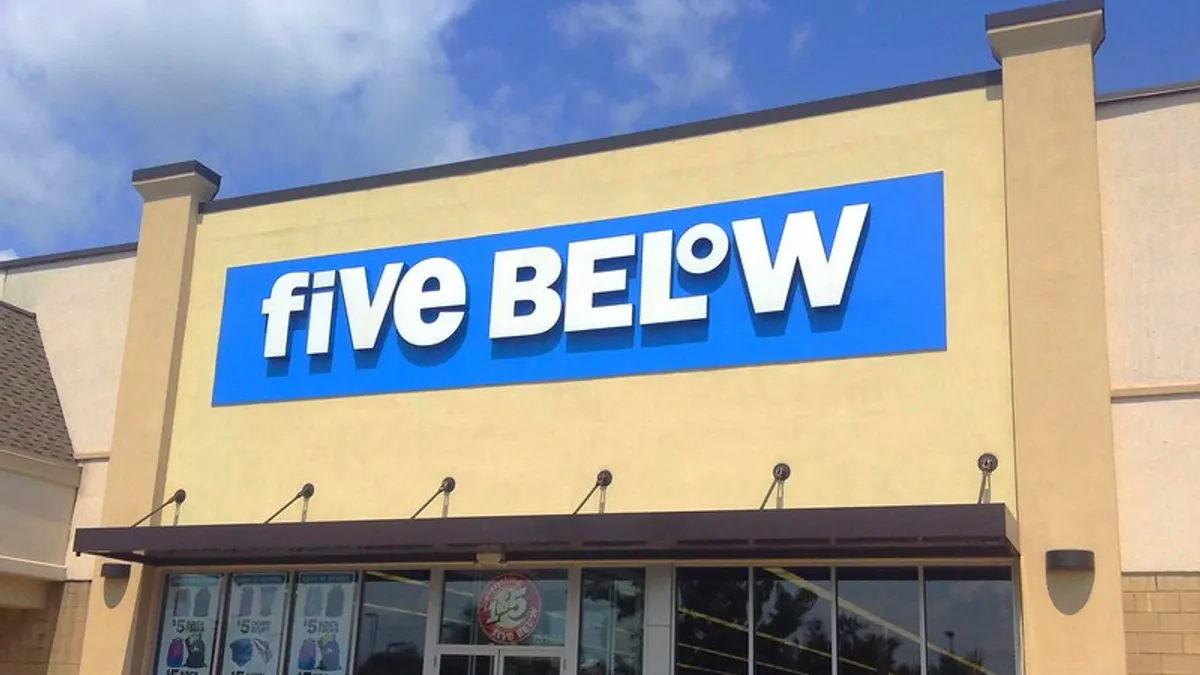ORLANDO, Fl. — In a closely watched holiday season, Five Below CEO Joel Anderson said the discount retailer had “no surprises” during the period, which helped to push its sales up 11.2% to just over $1 billion.
“We didn’t see the lull in the middle of December that we’ve seen several years,” Anderson said in a discussion at ICR on Monday. For the fourth quarter overall, Five Below is now guiding toward the high end of its previous forecast and Anderson said the company was “very pleased with what we saw.”
Even macroeconomic headwinds including inflation and a potential recession work in the discounter’s favor “because it’s all about value,” Anderson said. Over the years, the retailer has benefited from somewhat random trends like fidget spinners, but Anderson argued back against the implication that this would make it harder for the discounter to maintain its growth. The executive said Five Below’s ability to identify hot trends and capitalize on them was part of its “secret sauce.”
“It’s not only about getting into a trend, but also knowing how to land the plane and get out of it,” Anderson said. “You’re not going to walk into our stores today and see any leftovers of past year’s trend products.”
As the retailer looks ahead to 2023, Five Below is banking on the higher-priced Five Beyond concept to buoy its sales. The idea began as a collection of higher-priced items on a shelf in existing Five Below stores and has since grown to a store-within-a-store concept that is now in 250 locations. According to Anderson, the company sees roughly twice the spend from customers who purchase Five Beyond products and has received positive feedback on the format.
Also improving the in-store experience is assisted self-checkouts, which are now in about 70% of Five Below stores and have mitigated long lines, Chief Financial Officer Ken Bull said. The retailer aims to expand the Five Beyond concept even further next year, with plans to convert 400 stores to the format.
“The entire fleet is going to change in three to three and a half years. It’s very rare to see in retail where in such a short period of time, you’re able to transform the entire fleet,” Anderson said. “It’s not just about new stores opening this way, it’s about taking the existing fleet and converting it … We see an immediate lift the week after we change it.”
















